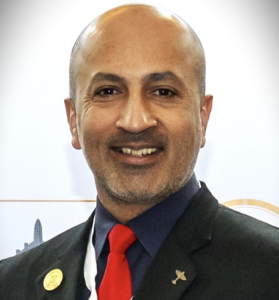Aviation subject matter expert Fahad Ibne Masood delivers an in-depth overview and the key takeaways from the recent Pilotless Summit 2024 in London.

Pilotless Summit 2024, London.
Pilotless Summit 2024 held in London brought together industry as well as academia thought leaders and stakeholders to delve into the future of autonomous aviation, particularly in light of the UK government’s recently announced ambitious timeline for introducing unmanned flying taxis by 2030.
However, beyond the excitement and optimism surrounding this vision, the summit uncovered a plethora of challenges and uncertainties that underscore the complex journey towards realizing pilotless flight. A few important pointers are mentioned below.
Ambiguity in Autonomy: One of the most striking revelations from the summit was the prevalent ambiguity surrounding the concept of ‘autonomy’. Despite the widespread use of the term, there exists no clear definition or consensus within the industry. This lack of verbal clarity poses a fundamental barrier to progress, as stakeholders struggle to align their efforts and expectations.
Infrastructure Impediments: While the idea of unmanned aerial vehicles (UAVs) buzzing through the skies may seem futuristic, the reality of building the necessary infrastructure to support such operations is daunting. From vertiports to regulatory frameworks for air traffic management, the summit underscored the immense logistical challenges involved in transforming urban landscapes to accommodate autonomous flight.
Regulatory Hurdles: Regulatory frameworks governing autonomous aviation lag far behind technological advancements. Without robust certification processes and regulatory guidelines in place, investors remain wary of pouring resources into ‘risk intensive’ projects that may face insurmountable regulatory barriers. The summit highlighted the urgent need for regulators to catch up with industry innovation to foster a conducive environment for investment and development.
Financial Constraints: The financial viability of autonomous aviation ventures remains a subject of debate and concern. Securing funding for research, development, and infrastructure projects proves challenging in the absence of clear business cases and demonstrated return on investment. Without sufficient financial backing, even the most promising technological innovations risk stagnating in the conceptual stage.
Collaboration and Coordination: Amidst the myriad challenges discussed, the importance of collaboration and coordination among stakeholders emerged as a recurring theme. From industry players to government agencies and regulatory bodies, effective collaboration is essential to navigate the complexities of autonomous aviation and drive meaningful progress.
Key Takeaways: A long road ahead
The Pilotless Summit 2024 served as a reality check on all global targets for unmanned flying taxis. The industry urgently needs to…
- Standardize terminology: A clear definition of “autonomous” is essential for setting realistic expectations and facilitating progress.
- Develop a strong business case: Demonstrating the profitability of unmanned taxis is crucial to attracting investment for infrastructure development.
- Bridge the regulatory gap: Collaboration between regulators and the industry is essential to create a framework that fosters innovation while ensuring safety.
Reaching a consensus on these issues will pave the way for a more realistic timeline for unmanned taxis. Unless and until we are pragmatic though, all wishful timelines seem like a flight of fancy rather than a feasible target.
Conclusion
While the prospect of pilotless flight holds immense promise for revolutionizing transportation and urban mobility, the road ahead is fraught with challenges.
The Pilotless Summit 2024 served as a stark reminder of the multifaceted obstacles that must be addressed collectively to realize the vision of autonomous aviation. From defining autonomy to overcoming regulatory hurdles and securing investment, the journey towards unmanned flight demands concerted efforts and innovative solutions from all stakeholders involved.
The solution: stakeholders must become shareholders.
Captain Fahad Ibne Masood, MRAeS

Pioneering aviation leader with 25+ years of experience shaping AAM, UTM, and AI integration in the next generation of flight.
A Doctoral candidate in Aviation Management, Fahad is passionate about shaping future leaders (MCBS lecturer, Oman) and pushing safety boundaries (former fighter pilot, 800+ instructional hours, predictive risk management research).
Active in prestigious societies and a continuous learner, Fahad brings a versatile skillset in technology, safety, and leadership to the future of aviation.





